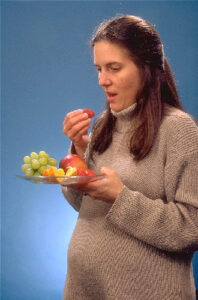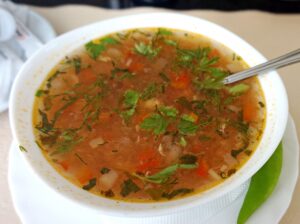As women age, their nutritional needs change based on a variety of physiological functions. A less active lifestyle can lead to weight gain, poor blood cholesterol and osteoporosis. Most diet advice designed especially for women over 40 combines reasonable calorie reduction, healthy eating and some physical activity. It’s the best way to maintain or lose weight while providing your body with the nutrients it needs to keep you at your peak.
Daily Calories for Women over 40
Women over 40 should eat between 1,800 and 2,200 calories for healthy weight maintenance, depending on their activity levels, according to the U.S. Department of Agriculture.
These numbers are based on a model woman who is 5 feet, 4 inches tall and 126 lbs. Meet with your physician or a registered dietician to get more exact numbers based on your height, weight, activity levels and any health concerns particular to you.
Weight Loss for Women in their 40s
Eat 500 calories fewer each day than your recommended calorie number for weight maintenance for each pound of weight you want to lose per week. A healthy, long-term weight-loss diet should aim for 1 lb. to 2 lb. of weight each week, recommends the National Institutes of Health. The USDA recommends no fewer than 1,200 calories per day for an adult woman for good health.
Burning extra calories each day, in conjunction with calorie restriction, can make weight loss less difficult. For example, instead of trying to decrease your calories by 1,000 each day, cut 500 calories from your diet and burn 500 through exercise.
Women Need More Iron
Women generally need more iron than men, especially during menstruation or if they are pregnant. Lack of iron can cause a host of health problems, including iron deficiency anemia, dizziness, lack of energy and headaches. Good sources of iron include black beans, tofu, leafy greens and red meat.
Choose less expensive cuts of beef, such as flank, sirloin or top round to avoid excess fat. The Institute of Medicine’s Food and Nutrition Board recommends that women age 19 to 50 years old get 18 mg of iron each day, with women older than 50 getting 8 mg per day.
Calcium and Vitamin D for Women
Half of senior women will suffer a bone fracture during their lifetime, according to the Bone Health & Osteoporosis Foundation. Lack of calcium and vitamin D leads to a decrease in bone density. Dairy products are a good source of calcium, but choose low-fat versions.
Vitamin D does not occur naturally in foods, but many dairy products are fortified with this essential nutrient, so choose foods fortified with it. If you drink orange juice, choose a brand that is calcium fortified.
Keep and Eye on Saturated Fat
When taking diet advice designed especially for women over 40, remember to watch your fat intake. Adding red meat and dairy to your diet to increase iron, calcium and vitamin D may add more saturated fat. Choose low-fat meats and dairy products. Oatmeal, olive oil, nuts and fish are good choices for cholesterol-fighting foods.

